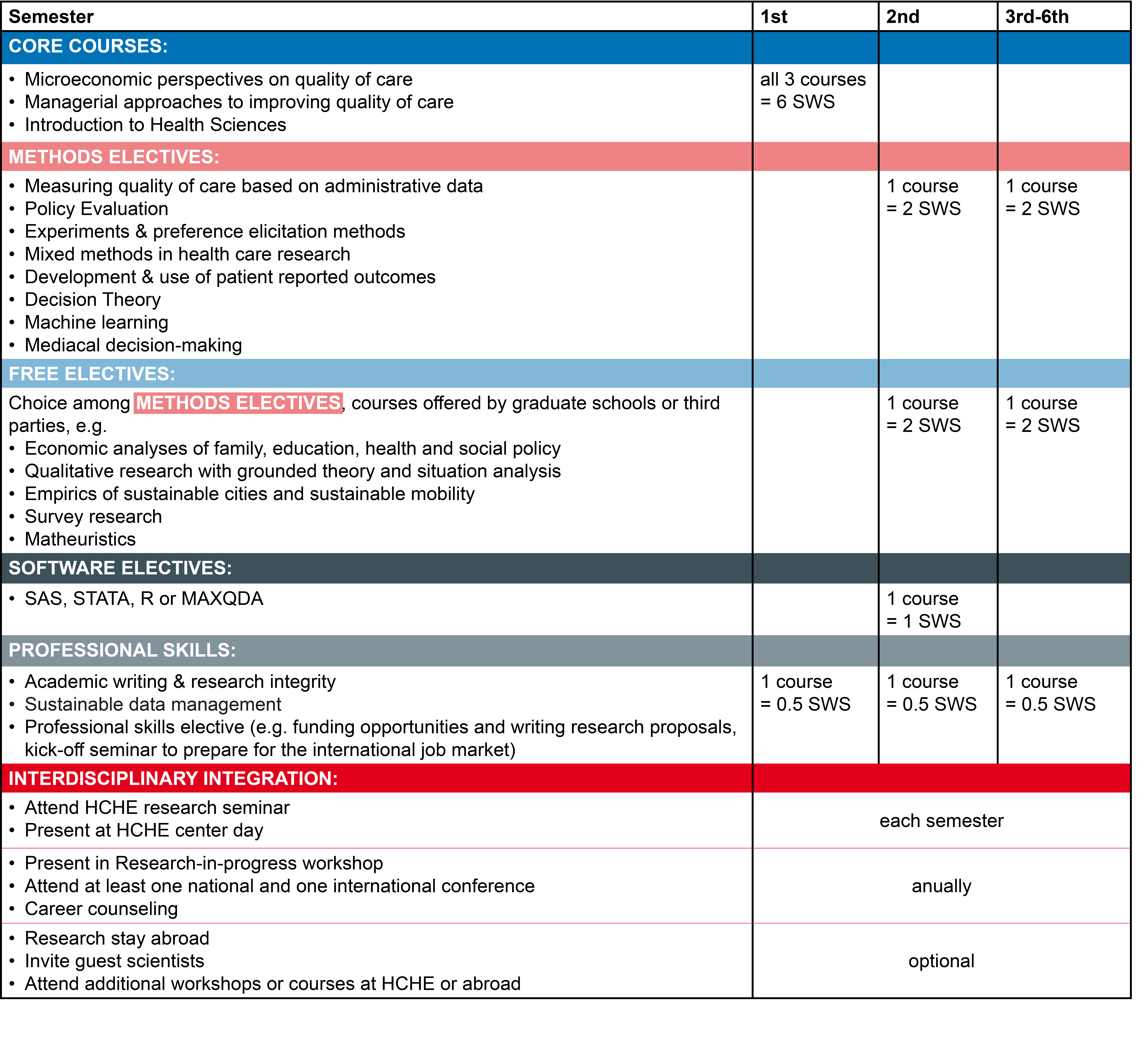PhD Programme
Our programme will enable PhD students with a background in economics, business administration or closely related fields to write a doctoral dissertation in the research area ‘quality of care’. PhD students will acquire the skills needed to analyse the quality of care from a health economic perspective. Their knowledge of economics or business administration will be activated, adjusted and brought to a higher level.
Moreover, they will be trained to reflect upon and discuss topics critically. Such training will enhance their potential to do research and be impactful in health care but also beyond because the knowledge and skills they acquire can be transferred to other fields. For instance, other highly regulated markets, such as utilities and transport, have structures and require approaches that are similar to those in health care.
In addition, PhD students will learn how to structure and organise their work. They will learn how to write scientific papers and successfully publish in high-ranking, international peer-reviewed journals. PhD students will give presentations, be engaged in teams and interact with colleagues and external experts who will provide feedback on their work.
Our scientific training that consists of seven research-related courses will concentrate on the foundations of different disciplines, but also statistics and epidemiology. PhD students are to attend
- three core courses focusing on economics, management and medicine/health sciences
- two methods electives focusing on methods
- two free electives designed to facilitate further specialisation in methods or other topics
- one elective focusing on statistical software packages
- three short courses for training in complementary skills.

Formal education of the PhD students will be augmented by their participation in research seminars and workshops. They will take part in international conferences, benefit from exchange with visiting researchers and will have the possibility to undertake research stays abroad.
The primary supervisor will meet with each of his or her PhD students regularly to ensure that they progress in their education and research according to plan, and also to be able to guide them better in their training. At least every eight weeks, students will be offered meetings with their secondary supervisors to receive feedback and exchange ideas.

